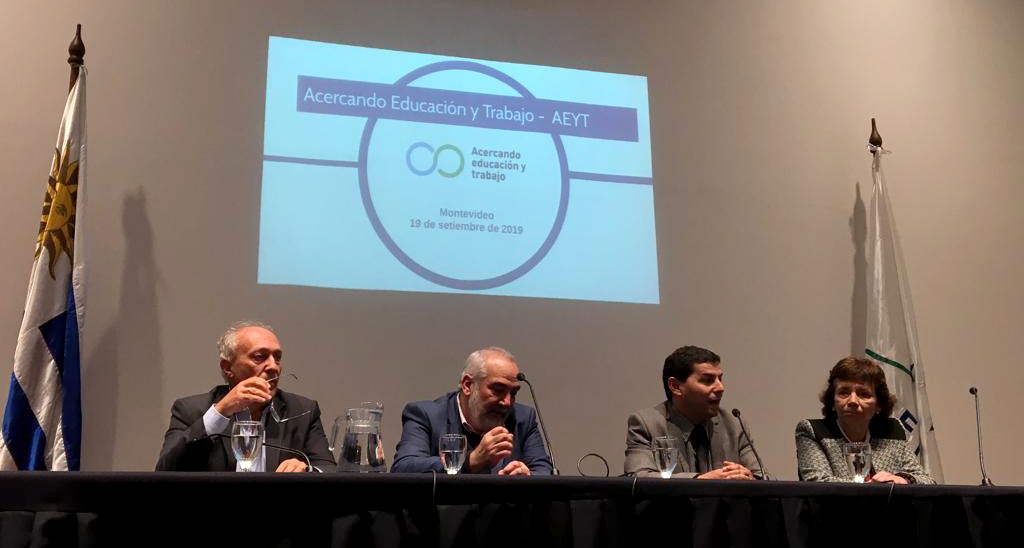To strengthen this public policy, and with the support of EUROsociAL+, the Uruguayan Government organised a series of activities involving the participation of the Ministry of Labour and Social Security (MTSS), the National Institute for Employment and Vocational Training (INEFOP), the National Administration of Public Education (ANEP), the Council of Professional Technical Education (CETP/UTU), the Technological University (UTEC), the PIT-CNT, the Chamber of Industries of Uruguay (CIU) and the National Chamber of Commerce and Services of Uruguay (CNCS).

On September 18 and 19, the Government of Uruguay organised, with the support of the EUROsociAL+ Programme, a series of activities to strengthen its policy Approaching Education and Work.
Approaching Education and Work is a dual training programme in which several institutions have been working together; the National Institute of Employment and Vocational Training (INEFOP), the Ministry of Labour and Social Security (MTSS), the National Administration of Public Education (ANEP), the Council of Professional Technical Education (CETP/UTU), the Technological University (UTEC), the PIT-CNT, the Chamber of Industries of Uruguay (CIU) and the National Chamber of Commerce and Services of Uruguay (CNCS). This proposal aims to directly influence the ways in which young people are currently linked from the education system to the labour market. It consists of an educational modality in which the young person incorporates hours of learning both in the educational institution and in a company in the field in which they study.
The opening discussion was attended by Eduardo Pereyra, general director of INEFOP; Wilson Netto, president of CODICEN; Graciela Do Mato, advisor of UTEC; Miguel Venturiello, advisor of UTU; and Francesco Chiodi, representative of the EUROsociAL+ Programme.
Eduardo Pereyra said it is a very important project for the country, with specific proposals and a new format. In addition, he spoke of the need to train young people and define the time periods for training, while Francesco Chiodi said that this type of training is no longer an innovation, but is a current educational need and represents a way to adapt. He also noted that the inter-institutional partnership achieved in this project is an achievement and an example to be replicated in other countries in the region.
The day culminated with a comments session from the invited foreign people: Andrea Lombardi (UNISER- Italy), Päivi Korhonen (OMNIA – Finland), Aleida Mancipe (SENA – Colombia) and Virginia Tedeschi of EUROsociAL+, who served as a moderator.
On September 18, a working meeting of the international guests was held with the representatives of the different institutions that constitute the Inter-Institutional Commission, to learn more about the mechanisms for implementing this modality in Uruguay as well as in Italy, Finland and Colombia. On the 19th, a Breakfast was held with the business sector to involve companies in the policies that the country is promoting, in which the Chamber of Commerce and Services and the National Chamber of Industries of Uruguay participated in addition to various business associations. And on the same day in the afternoon, there was the “Public presentation of proposals 2019 and 2020, which integrate companies as training spaces”; it consists of an educational modality in which the young person incorporates hours of learning both in the educational institution and in a company in the field in which they study. This reduces the gap between the world of education and work.
These activities in Uruguay give continuity to the debates and commitments developed during the first days of April in the Seminar “More young people in companies: How to integrate work and training as a way to improve youth employability and business productivity”, organised by EUROsociAL+ together with ILO, CINTERFOR, the EU-LAC Foundation and the Ministry of Labour and Employment Promotion of Peru.



